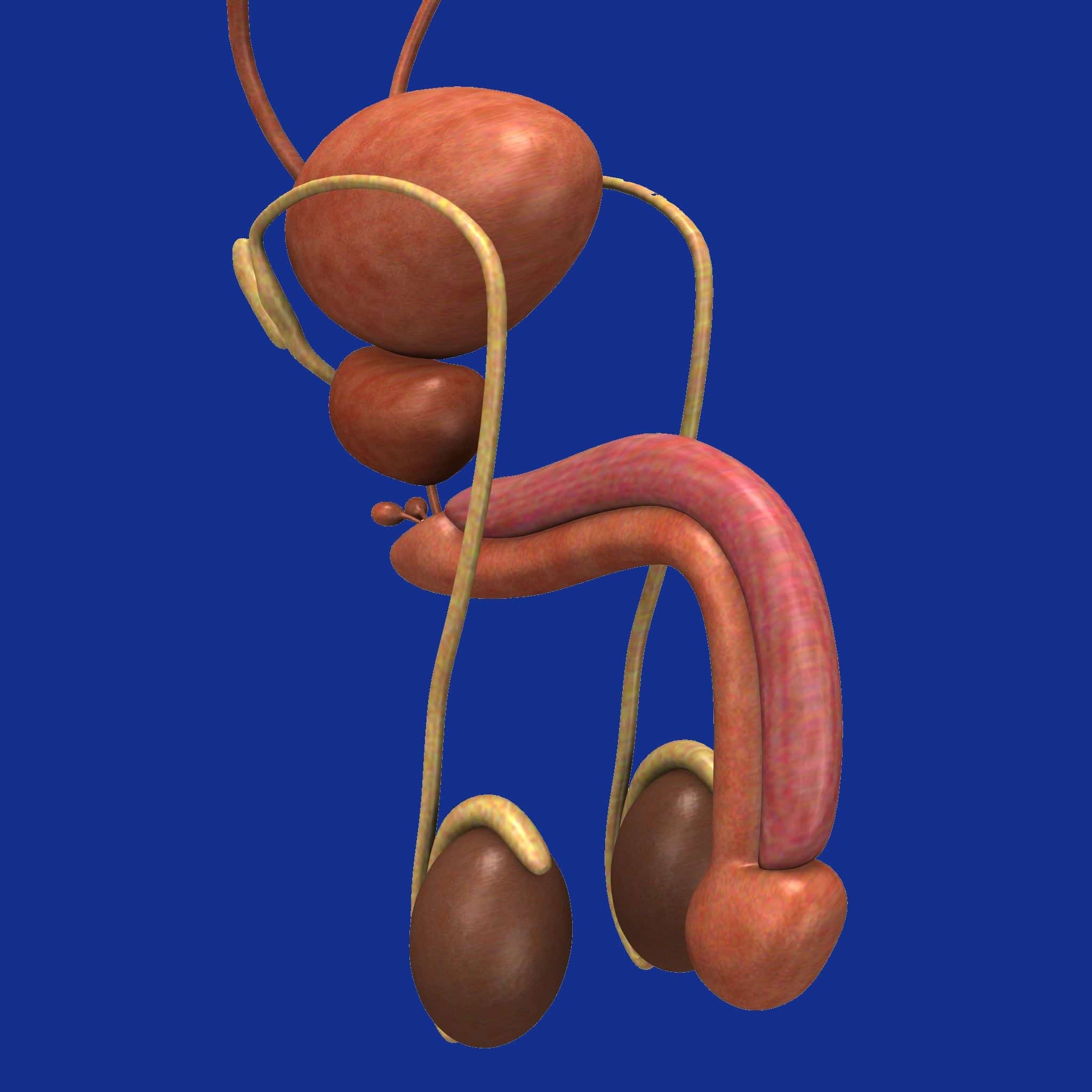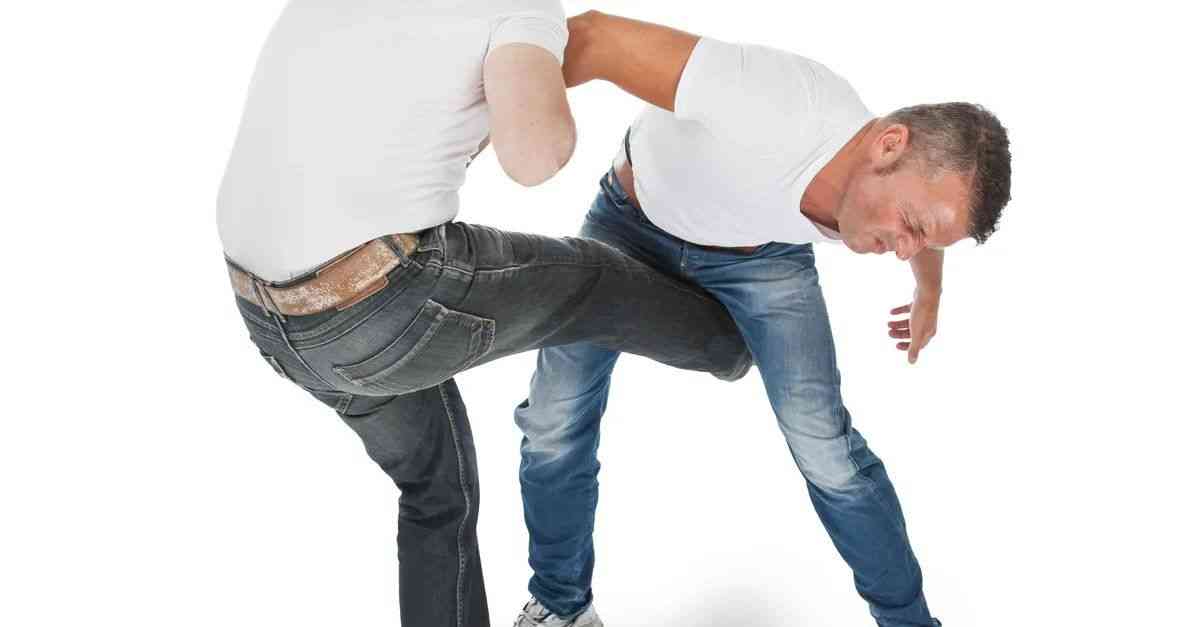Table of Contents
Kicked In The Balls- Why Does It Pain So Much?
Getting kicked in the balls may give you chills even if you think for a minute about it. Wondering why getting kicked in the balls is so painful?
Not only does getting kicked in the balls pain like heck, but sufficient force can also lead to serious testicular or scrotal trauma that needs emergency treatment.
Read on to understand why getting kicked in the balls is so painful and when you need to be worried about it.
Overview

The testicles, or balls, are tiny organs within the scrotum. They are accountable for creating sperm and secreting a hormone called testosterone. The testicles possess many nerve endings, due to which they are susceptible to pain.
The testicles are external organs that sag loosely within the scrotum. Exterior positioning lets them stay cooler than the remaining body, necessary for sperm production. However, it makes them externally vulnerable to harm from blunt trauma.
A blow to your testicles may lead to immense pain, swelling, and bruising. In more extreme cases, testicular trauma might lead to a rupture, potentially causing a hematocele, which refers to a collection of blood in the scrotal sac. If a person goes through a blow to the testicles and is undergoing chronic pain and inflammation, it is recommended to seek prompt medical attention.
Why does getting kicked in the balls hurt so much?
You may not know this, but genitals are closely packed with nerve endings. This small space possesses a higher concentration of nerve endings than other areas of your body where nerves are spread out more in number.
This is why any kind of touch can cause some powerful feelings — bad or good— based on the amount of pressure applied. Unlike different organs shielded by bone and muscle, your testes and penis are all out there susceptible to a blow.
They are just loosely bound to the body. And the testicles’ only defense is a coating of fibrous tissue known as the tunica albuginea. While this layer is tough enough to endure some pressure, it can handle a minor extent of pressure.
Why do I feel the pain in my stomach after getting kicked in the balls?

Sensing pain somewhere else than the exact source is known as referred pain. This is the pain when you get kicked in the balls but endure the pain within the stomach. It occurs because of the intercommunicated tissues and nerves between your scrotum and abdomen.
The testicles develop in the abdomen from the identical level as the kidneys before descending to your scrotum and stretching nerves down with them.
The additional layers and tissues of the scrotal wall are also a continuance of different layers of the abdominal wall. These nerves or connections lead you to sense pain within the stomach even if you are kicked in the balls.
Similar to other relationships, the connection between your balls and your belly can sometimes induce vomiting and nausea when you get kicked in the balls.
I kind of like the pain. Is that normal?

If you like getting kicked in the balls or enjoy the pain- that is normal! Getting the balls smashed might not be everyone’s cup of tea, but that does not indicate anything sinful or wrong with it.
Some people hold what is called a ball-busting obsession or fetish. They emanate sexual arousal or pleasure from actions like slapping, squeezing, bending, or striking their balls using whips, paddles, hands— you fetch the idea.
If you wish to partake in the activity, here is how to go about it while maintaining your safety:
- Always offer and get approval before committing to any such type of sexual activity.
- Express and set precise boundaries about what you enjoy.
- Arrange a safe term to be used when you wish to stop.
- Start gradually with gentle squeezing or light slapping before operating your way up to more additional force.
- Understand that swelling is likely, even with a soft touch.
- Stop quickly if the pain reaches to be too much to bear, or your balls grow deep purple or red.
- If you puncture your skin or notice blood, it is time to see your healthcare provider.
How do I get over the pain?
If you get kicked in the balls, and the pain becomes too much to bear, the following might offer relief at home. If not, you must visit your healthcare experts for immediate attention:
- Lay down for a while.
- Grab an over-the-counter medication to relieve pain, such as acetaminophen or ibuprofen.
- Use a cold compress to the area where it pains.
- Wear supporting underwear or simply a pair of tight briefs to restrict movement that causes pain.
How common are testicular injuries?

As per research, testicular or scrotal trauma within the United States is occasional. Studies indicate that direct testicular trauma reports for less than 1% of the cases that emergency branches encounter.
Researchers earlier believed that blunt trauma was the most typical means for testicular damage. However, 2018 research suggests that a penetrating mechanism, like firearm assault, is currently more typical in the U.S.
Evidence indicates that testicular trauma might be more likely in those people who drive a vehicle or play sports.
Is there a risk of permanent damage after getting kicked in the balls?
Getting kicked in the balls or any violent trauma can damage the scrotum’s contents, particularly if the shielding layers are ripped in the process. Given that the testicles create semen, enough damage may lead to infertility.
Testicular rupture can result in permanent damage, which can influence fertility. Testicular torsion is also a severe injury that can cause the failure of a testicle if not ministered within a few hours after getting kicked in the balls or some other injury. It occurs when the spermatic cord wrenches, thus cutting off the supply of blood to the testicle.
Occasionally, trauma can result in epididymitis, which is swelling of the epididymis. The epididymis is a tube located at the back end of the testicles that stocks and carries sperm within it. When left untreated, it can direct to shrinkage of your testicles, infertility, and death of testicular tissue.
Here’s what may happen when you get kicked in the balls:
Testicular rupture
A testicular rupture refers to an injury that causes a tear or rips to the shielding tunica albuginea and causes damage to the testicles. Some analysis indicates that testicular rupture happens in approximately 50%direct, blunt testicular trauma cases.
Testicular torsion
Testicular torsion happens when the testicle spins on your spermatic cord, which provides the testicle with blood supply. When this occurs, it stops the flow of blood to the testicle. Occasionally, an injury can provoke testicular torsion.
Epididymitis
Epididymitis happens when the tube that stores and carries sperm, known as the epididymis, grows inflamed. Some analysis reveals that epididymal injury because of trauma is relatively common, existing in 25% of scrotal ultrasounds evaluated for trauma.
How to prevent injuries due to getting kicked in the balls
Although it might not always be feasible to stop or control testicular injuries, a person can abide by precautions in circumstances where they might be more probable to occur. For instance, people may consider:
- wearing a cup or jockstrap while playing sports
- being more careful when using machinery that may catch loose clothing.
- wearing your seatbelt at all times while you are in a vehicle
- being careful when riding a bike, all-terrain vehicle, motorcycle, or similar vehicle


